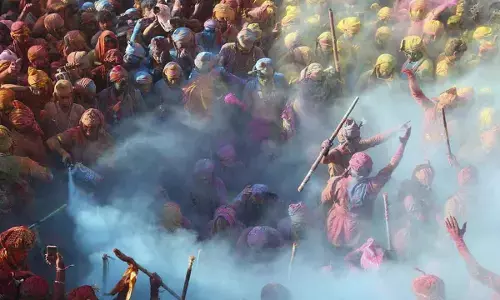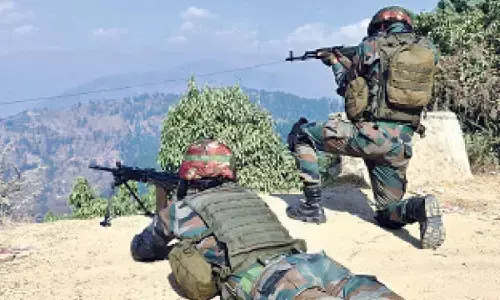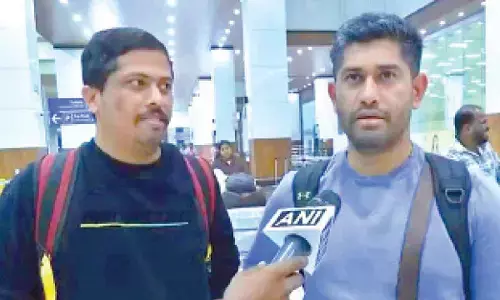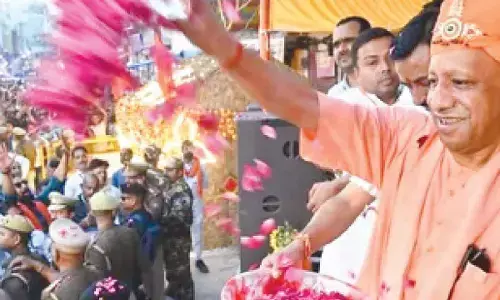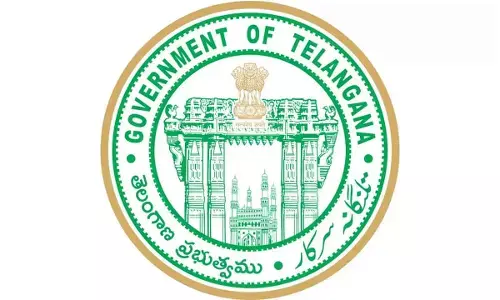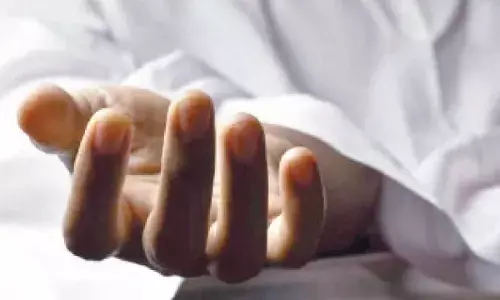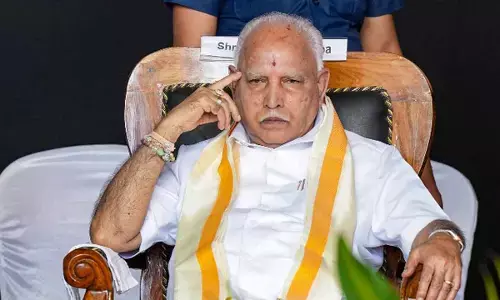 For anyone - least of all Tamilians - to argue in India that Prime Minister Dr Manmohan Singh should not attend the Commonwealth Heads of Government Meeting in Colombo is to show poor sense of political responsibility. This must be particularly impressed up on Tamil Nadu leadership – all of them, to whichever party they belong. In the first place the meeting was called by the Commonwealth office, not by Sri Lanka.
For anyone - least of all Tamilians - to argue in India that Prime Minister Dr Manmohan Singh should not attend the Commonwealth Heads of Government Meeting in Colombo is to show poor sense of political responsibility. This must be particularly impressed up on Tamil Nadu leadership – all of them, to whichever party they belong. In the first place the meeting was called by the Commonwealth office, not by Sri Lanka.
In the second place India is a senior member of the Commonwealth and must behave like one. In the third place, let us go back to history for a while. Throughout the Seventies, private parties and elements in the State Government of Tamil Nadu were believed to be supporting the armed rebellion undertaken by the Liberation Tigers of Tamil Eelam (LTTE).
India could hardly accept that and had necessarily to support the Sri Lankan Government, which had its own defects. For that India had to pay a heavy price in the assassination of Rajya Gandhi. Instead of finger-pointing, it would be a wise government which seeks to look into the future and not into the unsavory past. India needs Sri Lanka just as the latter needs its big neighbour.
Both are members of several regional and multilateral organisations such as the South Asian Association for Regional Cooperation (SAARC) and South Asia Cooperative Environment Programme not to mention South Asian Economic Union and BIMSTEC. Since a bilateral free trade agreement was signed and came into effect in 2000, Indo-Sri Lanka trade rose by 128% in just four years and quadrupled by 2006. Between 2000 and 2004 India’s exports to Sri Lanka, increased by 113% while Sri Lankan exports to India increased by 342%.
Both nations are also signatories of the South Asia Free Trade Agreement (SAFTA). India's National Thermal Power Corporation is scheduled to build a 500 mw thermal power plant in Sampoor which will take Indo-Sri Lankan relationship to a new level.
A number of development projects are being implemented under “Aid to Sri Lanka' funds. An MoU on Cooperation in Small Development Projects has been signed. Under consideration are construction of a 150-bed hospital at Dickoya, upgradation of a hospital in Trincomalee, upgradation of the educational infrastructure of schools in the central province including teacher training, setting up of ten computer labs and twenty e-libraries all over the state and a training programme for 465 Sri Lankan police officers.
According to media reports, even Madhya Pradesh Chief Minister Shivraj Singh Chouhan has promised to work with Sri Lankan authorities to build a temple dedicated to Sita in Nuwara Eliya. Ravana is forgotten. And that is as it should be. To show, in the circumstances pettiness is in poor taste. For better or for worse Sri Lanka is close to India not only because of the Tamil presence in substantially large numbers in north east Sri Lanka, but because of Buddhism.
It is in the Buddhist spirit again that India has supplied medical equipment to hospitals at Hambantota and Point Pedro, supplied four state-of-the-art ambulances to the Central Province and implemented a cataract eye surgery programme for 1,500 people again in the Central Province. No big deal, it may be urged, but Sri Lanka is not Brazil. Its needs are commensurate with its size and India has shown to be gracious in showing care and concern for the Sri Lankans at large. It is against this background that Dr Manmohan Singh should have gone to Sri Lanka for an entirely non-political conference called by the Commonwealth.
The Commonwealth is a needed institution. If it didn’t exist it would have been necessary to invent it, Time was when Britain, as the master country, dominated the organization. Now the time has come for India, as the largest member, to take charge of it, even if it is in Britain’s shadow.
As ,many as 53 countries are members of the Commonwealth, covering 29 million sq.kms, spanning all continents, with an estimated population of 2.245 billion, almost a third of the population of the world. It is an organization to be reckoned with. Of that population, half of it is in India, a point worth remembering. So we have – and should have – a stake in the Commonwealth. There are some who even believe that the Commonwealth should be turned into a Union on lines similar to the European Union and one can just imagine what influence India can exercise in its formation and possible birth.
For India, in the circumstances, to have behaved childishly to propitiate Tamil Nadu and for dissuading Dr Singh from attending the CHGM conference is not only bad politics but poor understanding of the Commonwealth’s future. India must behave like an adult country. And Tamil leaders must learn to put the country’s interests ahead of their narrow emotional hang-ups. India now has the power and capacity to handle the Commonwealth and reap benefits. This should not have been allowed to be vitiated for strictly electoral reasons. Above all else, India must be seen as an elder brother who wished all younger brothers with the highest consideration be it Bangladesh or, yes, Sri Lanka as well. By declining to attend the CHGM meeting Dr Manmohan Singh has done a distinct disservices to India.
This was one occasion for India to show that it wants to forget the past and to begin a new chapter in Indo-Sri Lankan relations. In that, Dr Singh has failed miserably. The past has been, yes, ugly; but the future promises great results. Statesmanship, one thinks is alien to Dr Singh’s political philosophy.

 For anyone - least of all Tamilians - to argue in India that Prime Minister Dr Manmohan Singh should not attend the Commonwealth Heads of Government Meeting in Colombo is to show poor sense of political responsibility. This must be particularly impressed up on Tamil Nadu leadership – all of them, to whichever party they belong. In the first place the meeting was called by the Commonwealth office, not by Sri Lanka.
For anyone - least of all Tamilians - to argue in India that Prime Minister Dr Manmohan Singh should not attend the Commonwealth Heads of Government Meeting in Colombo is to show poor sense of political responsibility. This must be particularly impressed up on Tamil Nadu leadership – all of them, to whichever party they belong. In the first place the meeting was called by the Commonwealth office, not by Sri Lanka.

